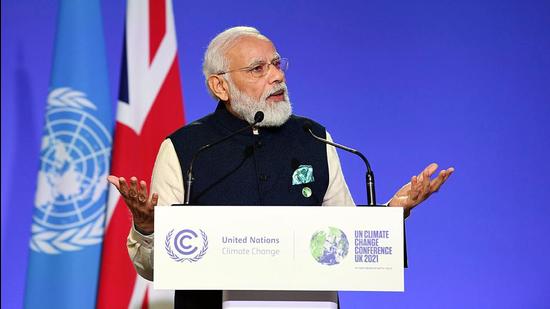In defence of India’s climate stance
India ended up being unfairly blamed for watering down the language of the climate pact text, by forcing a dilution on coal, from phasing it “out” to phasing it “down”
Few countries have combined a sense of responsibility to the environment and commitment to the future development trajectory of their citizens in the climate debate as India. In Glasgow, India went way beyond what its historic responsibility in contributing to the climate crisis would have entailed — because it could see that the climate crisis is real, its consequences are devastating, the future economic paradigm had to be based on a low-emission trajectory, and every country had to do more than its share to fight it.

Compare it to the others. The developed bloc kept wriggling out of its responsibility in contributing to the crisis, on climate finance, and loss and damage. The United States (US), for all its self-righteousness, came to the summit after having diluted a core climate-related component of a proposed domestic legislation. China’s top leadership didn’t even turn up — even though it is taking up a disproportionate share of the remaining carbon space.
And yet, India ended up being unfairly blamed for watering down the language of the climate pact text, by forcing a dilution on coal, from phasing it “out” to phasing it “down”. Indian officials, on Wednesday, explained what really happened — India believes that solely targeting coal is unfair when developing countries need it for energy needs; the language, however, came out of a US-China joint statement, not India’s intervention; India read out the reworded text because the presidency requested it to do so, in the spirit of consensus. It is important that developed countries set the narrative right, and not blame the one country that has made a huge leap in its climate commitments, both in Paris and in Glasgow.
All Access.
One Subscription.
Get 360° coverage—from daily headlines
to 100 year archives.



HT App & Website






